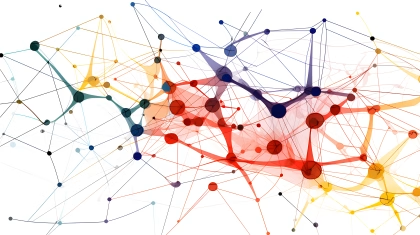Table of Contents
As 2024 has come to an end, we look back at the remarkable research powered by iMotions software. Researchers from a wide range of fields have leveraged these cutting-edge tools to tackle new challenges, yielding fresh insights into human behavior, cognition, and technological innovation.
These publications highlight the versatility of iMotions in advancing academic research across industries and disciplines. Whether you’re interested in consumer behavior, healthcare innovation, or remote biometric research, these studies highlight the incredible potential of multimodal research tools. We’re proud to support such groundbreaking work and look forward to seeing what 2025 brings!

Expert gaze as a usability indicator of medical AI decision support systems: A preliminary study
Nora Castner, Lubaina Arsiwala-Scheppach, Sarah Mertens, Joachim Krois, Enkeleda Thaqi, Enkelejda Kasneci, Siegfried Wahl, Falk Schwendicke
University of Tübingen, Charité – Univesitätsmedizin, Technical University of Munich
This study explores how medical experts’ eye movements can serve as usability indicators for AI-driven decision support systems. Using iMotions’ eye-tracking capabilities, researchers identified patterns in expert attention, providing actionable insights for improving the design and efficiency of AI tools in healthcare. A compelling read for those in medtech and human-computer interaction.
My money-My problem: How fear-of-missing-out appeals can hinder sustainable investment decisions
Jan-Hinrich Meyer, Felix Friederich, Jorge Matute, Michelle Schwarz
IQS School of Management, Universitat Ramon Llull
This paper uncovers the counterproductive effects of fear-of-missing-out (FOMO) messaging on sustainable investment behavior. Researchers utilized iMotions to analyze emotional and cognitive responses, revealing that FOMO appeals may increase stress and reduce trust in sustainability-focused financial products. This publication is particularly relevant for ethical marketing and behavioral finance professionals.
In-Lab and Remote Webcam-Based Respiration: A Promising Candidate for Neuromarketing?
Luisina Gregoret, Divya Seernani, Jessica Wilson
Pioneering the use of webcam-based biometric tools, this study evaluates the feasibility of remote respiration analysis for neuromarketing applications. By leveraging iMotions’ cutting-edge Remote Data Collection platform, researchers demonstrated how non-invasive methods could provide scalable, accurate physiological insights. This work represents a significant step forward for remote biometric research.
Implicit and explicit liking of a snack with health- versus taste-related information
Lisa Stickel, Klaus G. Grunert, Liisa Lähteenmäki
Aarhus University, MAPP Centre
This publication bridges consumer neuroscience and health communication, examining how health-related versus taste-related messaging influences snack preferences. Utilizing iMotions for emotion analysis and implicit association testing, the study provides actionable insights for marketers and public health advocates alike.
This article is… Consumer reactions to unfinished teasers for digital content
Juan Romero-Luis, Alejandro Carbonell-Alcocer, Valeria Levratto, Manuel Gertrudix, María Del Carmen Gertrudis Casado, Alexandra Hernandez-Remedios
In this fascinating exploration of consumer behavior, researchers delve into how unfinished digital content impacts consumer engagement and decision-making. The study highlights the interplay between curiosity, emotional responses, and cognitive processing. By using eye tracking and facial expression analysis, the researchers shed light on how anticipation influences audience retention and interest in digital media.












